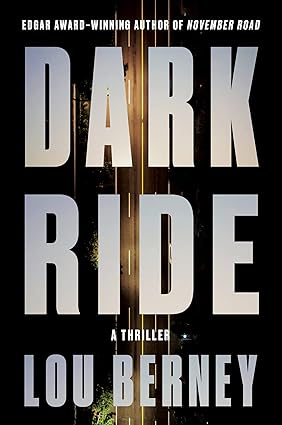
Why not? he thought.
Understanding, even as he thought it, that asking yourself, Why not? was usually the beginning of a bad decision, the first domino tipping over.
I like Lou Berney’s Shake Bouchon novels very much. The main problem with them is that he brings them out pretty slowly. So it was a pleasure when I saw that there was a new one available – Double Barrel Bluff. It’s an excellent, offbeat, dark comedy thriller.
Charles “Shake” Bouchon, our hero, is a former wheel man for the Armenian mob in Las Vegas. But he’s now married to Gina, a former pickpocket, and they’ve gone straight. Straight to Bloomington, Indiana, where they have square jobs and live a square life. Which they love.
Until one morning Shake finds himself accosted by an old enemy, Dikran Ghazarian, an Armenian thug the size and strength of an ox, with only a little more brains. To Shake’s astonishment, Dikran – who has often promised to murder him – does not want that today. He explains (after catching Shake) that Lexy Ilandryan, the woman leader of the Armenian mob, has disappeared while on vacation in Cambodia. He needs Shake to go to Cambodia with him and find her. Shake feels some obligation to Lexy, and so they fly there, to hunt for Lexy among the slums and ancient temples.
The dark humor of Double Barrel Bluff rises in large part from Shake’s attempts to keep a rein on Dikran, whose idea of investigating is to punch people and break things. Meanwhile we also follow the team of kidnappers, also a “smart” one and a dumb one, oddly parallel to Shake and Dikran. Author Berney excels at characterization – the good guys and bad guys constantly surprise us, but never pass plausibility.
Cautions for language and extreme situations. And some psychic/Buddhist nonsense. But Double Barrel Bluff was a very exciting and amusing light thriller. I enjoyed it a lot.



